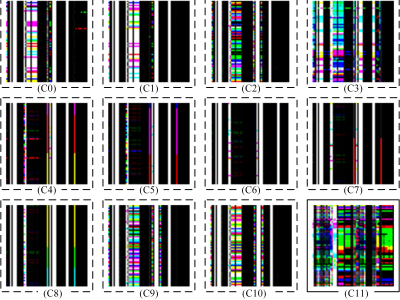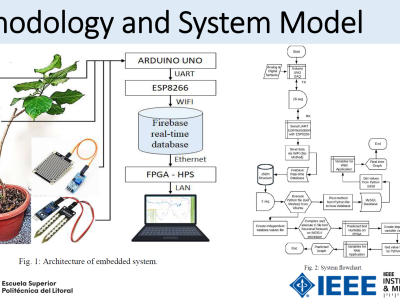IoT Healthcare Security Dataset
- Citation Author(s):
-
Syed Ghazanfar Abbas (University of Engineering and Technology (UET) Lahore, Pakistan)Ghalib A. Shah (University of Engineering and Technology (UET) Lahore, Pakistan)Ivan Miguel Pires (Instituto de Telecomunicações, Universidade da Beira Interior, 6200-001 Covilhã, Portugal)Ubaid U. Fayyaz (University of Engineering and Technology (UET) Lahore, Pakistan)Farrukh Shahzad (University of Engineering and Technology (UET) Lahore, Pakistan)Nuno M. Garcia (Instituto de Telecomunicações, Universidade da Beira Interior, 6200-001 Covilhã, Portugal)Eftim Zdravevski (Faculty of Computer Science and Engineering, University Ss Cyril and Methodius, 1000 Skopje, North Macedonia)
- Submitted by:
- Faisal Hussain
- Last updated:
- DOI:
- 10.21227/9w13-2t13
- Data Format:
- Links:
 13213 views
13213 views
- Categories:
- Keywords:
Abstract
The Internet of things (IoT) has emerged as a topic of intense interest among the research and industrial community as it has had a revolutionary impact on human life. The rapid growth of IoT technology has revolutionized human life by inaugurating the concept of smart devices, smart healthcare, smart industry, smart city, smart grid, among others. IoT devices’ security has become a serious concern nowadays, especially for the healthcare domain, where recent attacks exposed damaging IoT security vulnerabilities. Traditional network security solutions are well established. However, due to the resource constraint property of IoT devices and the distinct behavior of IoT protocols, the existing security mechanisms cannot be deployed directly for securing the IoT devices and network from the cyber-attacks. To enhance the level of security for IoT, researchers need IoT-specific tools, methods, and datasets. To address the mentioned problem, we provide a framework for developing IoT context-aware security solutions to detect malicious traffic in IoT use cases. The proposed framework consists of a newly created, open-source IoT data generator tool named IoT-Flock. The IoT-Flock tool allows researchers to develop an IoT use-case comprised of both normal and malicious IoT devices and generate traffic. Additionally, the proposed framework provides an open-source utility for converting the captured traffic generated by IoT-Flock into an IoT dataset. Using the proposed framework in this research, we first generated an IoT healthcare dataset which comprises both normal and IoT attack traffic. Afterwards, we applied different machine learning techniques to the generated dataset to detect the cyber-attacks and protect the healthcare system from cyber-attacks. The proposed framework will help in developing the context-aware IoT security solutions, especially for a sensitive use case like IoT healthcare environment.
Instructions:
- This dataset contains the normal and malicious traffic of an IoT healthcare use case.
- We created a use case of an IoT-based ICU with the capacity of 2 beds, where each bed is equipped with nine patient monitoring devices (i.e., sensors) and one control unit called as Bedx-Control-Unit. All these devices were created using the IoT-Flock tool (available at: https://github.com/ThingzDefense/IoT-Flock )
The following paper provides the details of how did we create this datset?
Paper: A Framework for Malicious Traffic Detection in IoT Healthcare
Authors: Faisal Hussain, Syed Ghazanfar Abbas, Ghalib A.Shah, Ivan Miguel Pires, Ubaid U. Fayyaz, Farrukh Shahzad, Nuno M. Garcia, Eftim Zdravevski
Publisher: MDPI Sensors
Online at: https://www.mdpi.com/1424-8220/21/9/3025
BibTex:
@article{hussain2021framework, title={A Framework for Malicious Traffic Detection in IoT Healthcare Environment}, author={Hussain, Faisal and Abbas, Syed Ghazanfar and Shah, Ghalib A and Pires, Ivan Miguel and Fayyaz, Ubaid U and Shahzad, Farrukh and Garcia, Nuno M and Zdravevski, Eftim}, journal={Sensors}, volume={21}, number={9}, pages={3025}, year={2021}, publisher={Multidisciplinary Digital Publishing Institute} }







